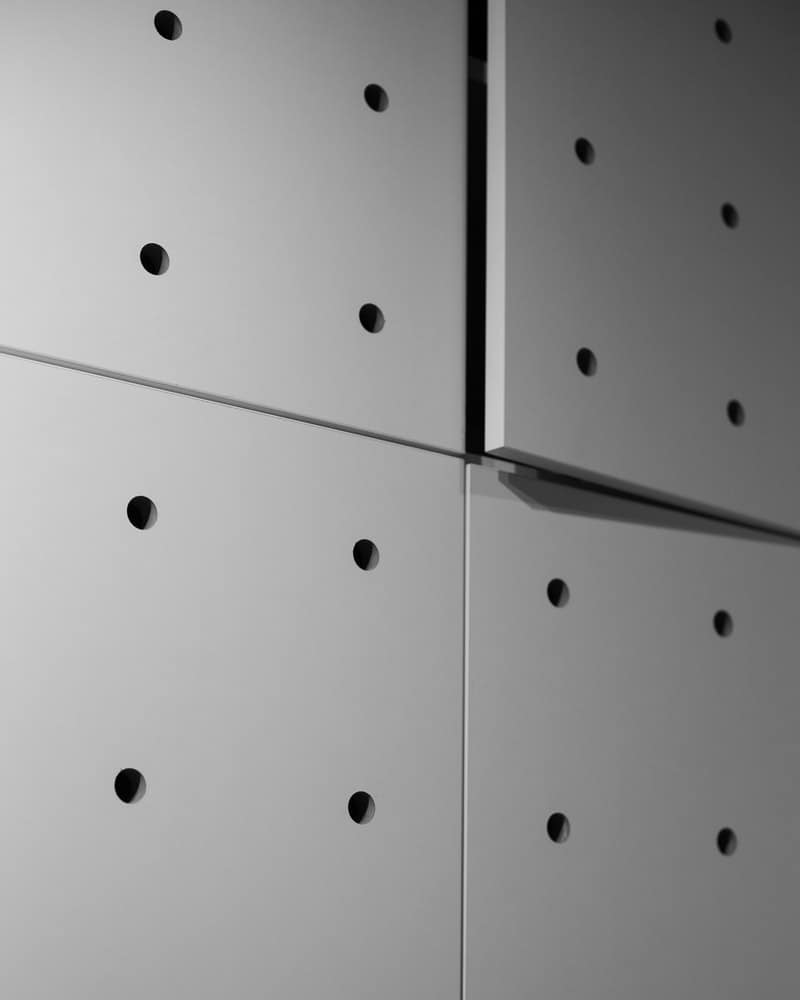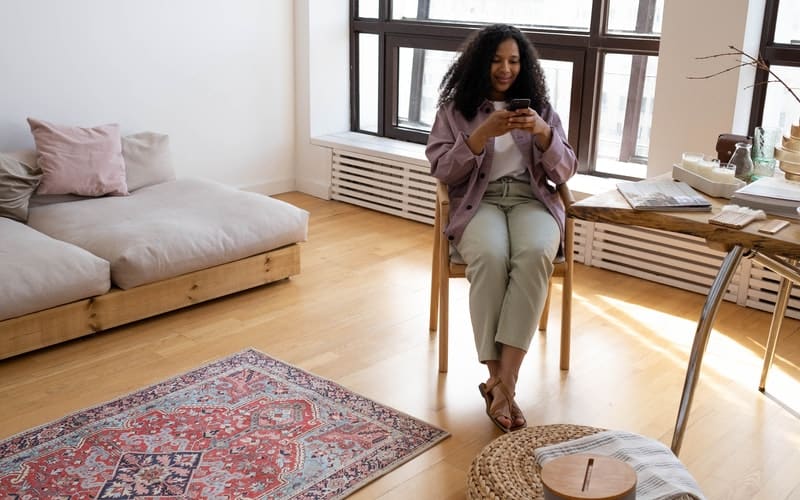Last Updated on February 11, 2023 by Ellen
Soundproofing office walls will not only help you work better but also make sure that everyone else around you works better too.
Posts may be sponsored. This post contains affiliate links, which means I will make a commission at no extra cost to you should you click through and make a purchase. As an Amazon Associate I earn from qualifying purchases.
Working from home can be a great way to get more done and save money, but it is hard to focus with the noise of kids playing in the background or dogs barking next door.
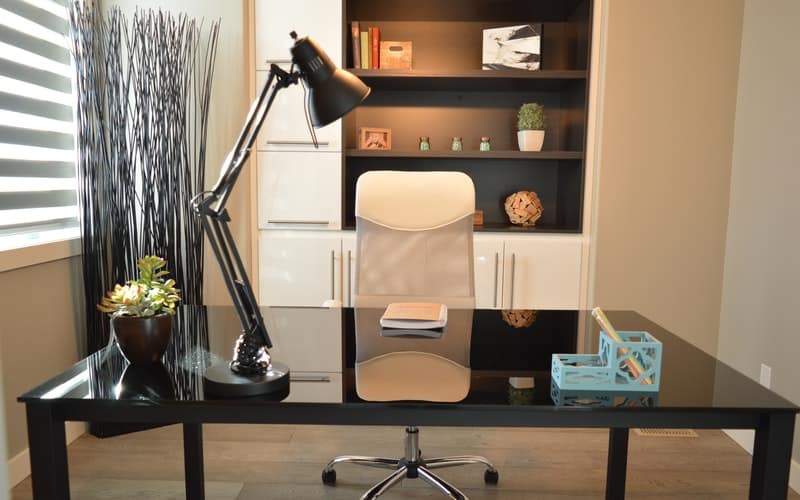
Soundproofing Office Walls
I have put together some tips on how to soundproof your home office so that you can get more work done with less distraction. There are a variety of soundproofing materials you can use in an office or home environment.
Noise reduction can be managed by several different methods depending on your budget and where all the sound is coming from. A lot will depend on your office layout and whether you are working at home or in open spaces like conference rooms or individual offices.
It may be more difficult to find an ideal solution for open offices. It’s harder to prevent sound in large spaces with no individual doors for private offices.
Does soundproofing office walls work?
Soundproofing an office has been a practice for decades with good reason. Many people who work from home or have worked from home know that it can be difficult to soundproof your office because of the lack of noise dampening offered by standard construction materials.
Soundproofing foam is one of several products on the market which can help with this problem. It can be added to a wall or ceiling to help absorb the sound of people walking next door or a dog barking in the other room.
Is soundproofing office walls effective?
Yes, it can help provide noise dampening if properly installed and used correctly. There are other soundproofing products that work better for some areas but not for others.
It’s not a good idea to cover every inch of the area with the same type or amount of soundproofing material. You need to know where the problem areas are for your home office and work on those first.
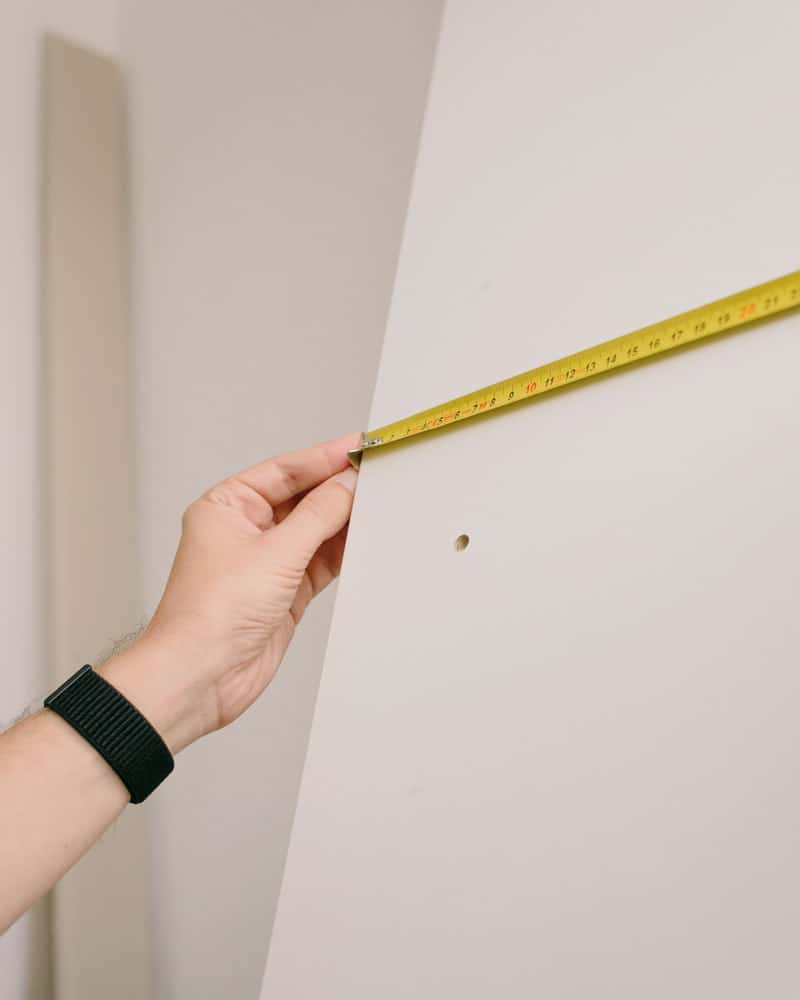
How do I find them?
Take some measurements of where the sounds are coming from. If you’re finding that the soundproofing foam isn’t helping you much, measure the room and figure out where all of the noise is coming from.
If there’s a large amount of noise coming from outside your home (a freeway nearby or a schoolyard), those areas will be more difficult to do anything about.
How can I soundproof my office?
There are a few different ways that you can soundproof your office walls. You can use some of the following home office soundproofing methods:
- Adding insulation
- Adding acoustic panels
- Using a noise blocker
How to Soundproof an Existing Office Space?
If you are looking to soundproof your existing office environment, then there are a few different things that you can try to block sound.
The easiest way to get started with soundproofing your office is by looking at the noise that comes through your wall. If you can pinpoint where it’s coming from, you’re halfway there.
Seal holes in the walls or place acoustic panels over them. Sound absorbing panels may be one of the easiest soundproofing solutions you can try. Here are a few more.
- Place carpeting on the floor and/or ceiling (This helps absorb some of the noise)
- Add insulation to your walls (This helps keep out some of the external noise). This is not only good for sound absorbing, but it can also help keep your office space warm in the winter and cool in the summer
- Install an acoustic panel (This will help reflect the sound.)
- Use a noise blocker (This will help with sound absorption.)
What are acoustic panels?
The most cost-effective way to improve the soundproofing of your office walls is by adding acoustic panels. This will not only help with external noise control, but can also help keep your office space warm in the winter and cool in the summer.
They are panels that you can hang on your walls or put on the ceiling. The panels come in different colors and dimensions, so you will be able to find one that matches your office decor.
They are made up of several layers, including an absorptive acoustical foam core with a thin metal sheeting that is tightly stretched across both sides. The sheets also have a pattern that helps to scatter the sound waves.
When you install the panels, they will help to reflect sound and keep it from bouncing around your office. This will create an environment that is more conducive to work.
Add Rugs
Sound can come from hard flooring. An area rug is softer and absorbs harsh sounds more effectively. You can find a variety of different throw rugs if installing wall-to-wall carpet isn’t possible.
This will help to reduce the sound that comes from foot traffic across the floor in a work environment. Putting a rug on a wall for soundproofing may help.
Consider a White Noise Machine
If you are finding that you can’t focus because of the noise in your work environment, then you might want to consider using a white noise machine.
A white noise machine creates a sound that helps drown out other noises and helps you to focus. It is a great option for people who work from home or for people who have trouble sleeping because of noise.
Playing an ambient noise like rain falling or a fan blowing may be just the solution you need to block out office noise.
Sounds Coming Through Your Wall
You may notice that one end of the room has more problems than the other. This is often because that side of the room is closer to the source of the problem. Try to make changes to that area first to help absorb sound or block it out.
If you can identify where the problem is coming from, you can address it specifically. For example, if your office is near a busy street, adding insulation to your windows may help lessen the sound.
Adding insulating material to your walls will do a great deal of good, but it may not eliminate the sound problem completely. You may still need to block the noise of the street if it’s too loud.
To do this, you can use a second layer of drywall on that side of your office. This will help muffle some of the sounds further, making your office more soundproof.
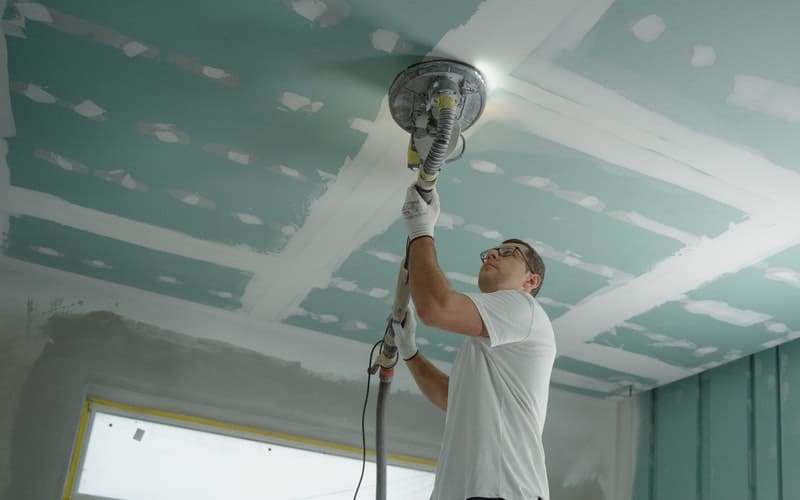
Look at your ceiling
If you have a drop ceiling, it’s possible that sound is coming through the ceiling. Look at the air vents and ceiling tiles. Drop ceilings can be a source of sound depending on the vent work that runs above them.
Blocking Noise With Drywall
Another way to soundproof your home office walls is by adding some panels inside the wall cavity. This will not only increase privacy but also halve the sound that comes through your wall.
Adding panels inside the wall cavity may seem complicated, but it is actually quite easy. You can do this by using a stapler to attach the panels to the studs behind them. This will help with office noise reduction.
Drywall is one of the most common office soundproofing materials.
Targeted Soundproofing
Cracks and gaps can be hard to find at first, but once you know where they are, it becomes much easier. If you have an air conditioning unit that’s making noise, adding insulation around it may dissipate some of the sounds and help with the problem.
You can also use soundproofing foam in areas where you know there is a lot of sound leakage. This will help to absorb the noise and make it easier for you to focus.
Foam for Soundproofing a Home Office
There are many different ways that you can soundproof your office walls, and each one comes with its own set of benefits. By using a combination of these methods, you can create an office that is both productive and quiet.
Many of the tools that you need for soundproofing can be purchased at your local hardware store. The more complex materials, such as drywall and foam, can also be purchased online.
Acoustic foam can form a sound barrier on your walls, which will help absorb the sound and keep it from traveling through the space.
Treating your wall with a soundproof coating can form a tight seal around the wall, making it much more difficult for sound to travel into or out of your room.
Install double pane windows
You can install better windows to help with sound transmission. The windows will help to reduce the sound and keep it from entering or exiting the room.
If you are using your office as a home studio, then you may want to consider using a professional-grade window. These windows are designed to help with noise reduction and are thicker than standard double pane windows.
Eliminate hollow core doors
You may also want to look at your entryways specifically. Hollow-core doors can crack and break easily, letting out a lot of noise. Instead, you may want to look into using solid core doors. These are much more effective for soundproofing purposes, and they will reduce the noise that escapes from within your home office.
If there are gaps that are letting in noise, then you can use soundproofing foam to fill in that gap. This will act as an extra layer of insulation and will help to keep the sound from getting through your wall.
Soundproofing Coating
You can coat your wall with acoustic sealant to create a tighter barrier against the noise entering through your walls. This material can be applied directly to your walls, and it is a great way to reduce the amount of noise that you hear.
Adding a soundproofing layer can be an effective way to keep the sound out and improve your focus. By using a combination of these methods, you can create an office that is both productive and quiet.
If you’re considering soundproofing office walls, try a few of these suggestions and see which one works best for you.
Related Reading
You may want to check out these articles.
- Best corner desk for an office
- Your creative workspace
- Home decor direct sales
- Feng shui corner for wealth

Ellen is a serial entrepreneur who owns 9 profitable blogs, two printable stores, an online vintage jewelry business, and a variety of other work at home endeavors. She shares tips for working at home successfully.
